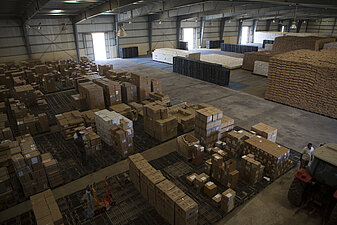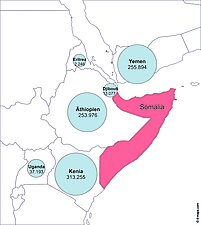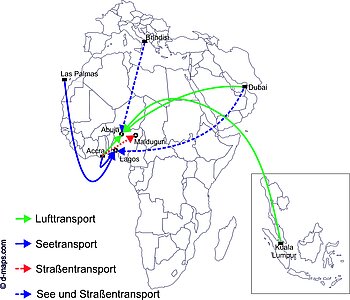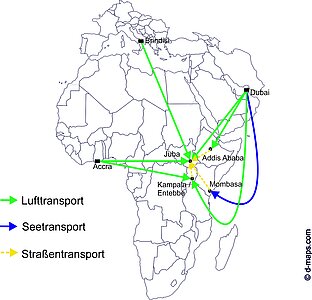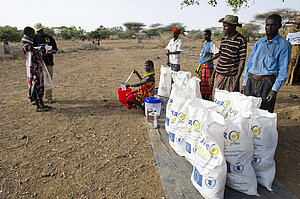Relief Supplies in Sub-Saharan Africa
The humanitarian situation in Sub-Saharan Africa has been extremely tense for several decades. In addition to ongoing political crises, such as in South Sudan since 2013, and famines, such as in East Africa in 2011 and Somalia in 2017, epidemics and disease outbreaks regularly lead to humanitarian emergencies.
Nearly 2.5 million refugees are fleeing Boko Haram, according to UNHCR. Famine in Somalia has led to the creation of the world's largest refugee camp in Kenya. In this mixed situation, aid organizations such as the World Food Program and the United Nations High Commissioner for Refugees (UNHCR) are working to improve the lives of African people.
Operation Description
Due to the heterogeneous nature of conflicts in Africa, the field of work of aid organizations varies greatly. In addition to food deliveries during famines, humanitarian organizations also provide basic education and safe shelter. The relief supplies needed for this purpose are delivered to the crisis regions from the depots of the United Nations Humanitarian Response Depot (UNHRD). Figure 3 shows the flow of relief supplies going to Nigeria due to the threat of Boko Haram. Figure 4 describes relief supplies going to South Sudan due to refugee movements from the civil war.
Outlook and Research Direction
Since humanitarian agencies often work together to respond to humanitarian emergencies in Africa, there is a need for efficient coordination of relief supplies in Africa. Furthermore, the seamless supply of the African population must be ensured for each disaster.
A research project of the Chair of Business Administration and Industrial Management at the University of Würzburg is dedicated to the question of an efficient and crisis-proof design of the supply chain for relief supplies in Sub-Saharan Africa. Depots are to be placed in such a way that the maximum possible coverage of the emerging demand for relief supplies can be achieved.
Contact & Links

Prof. Dr. Ronald Bogaschewsky has held the Chair of Business Administration and Industrial Management at the Faculty of Economics at the University of Würzburg since 2001. He is currently an associate member of the DAAD-funded project on the research and treatment of chronic infectious diseases. Felix Blank and Benjamin Siller are research assistants at the chair of Prof. Dr. Bogaschewsky.


